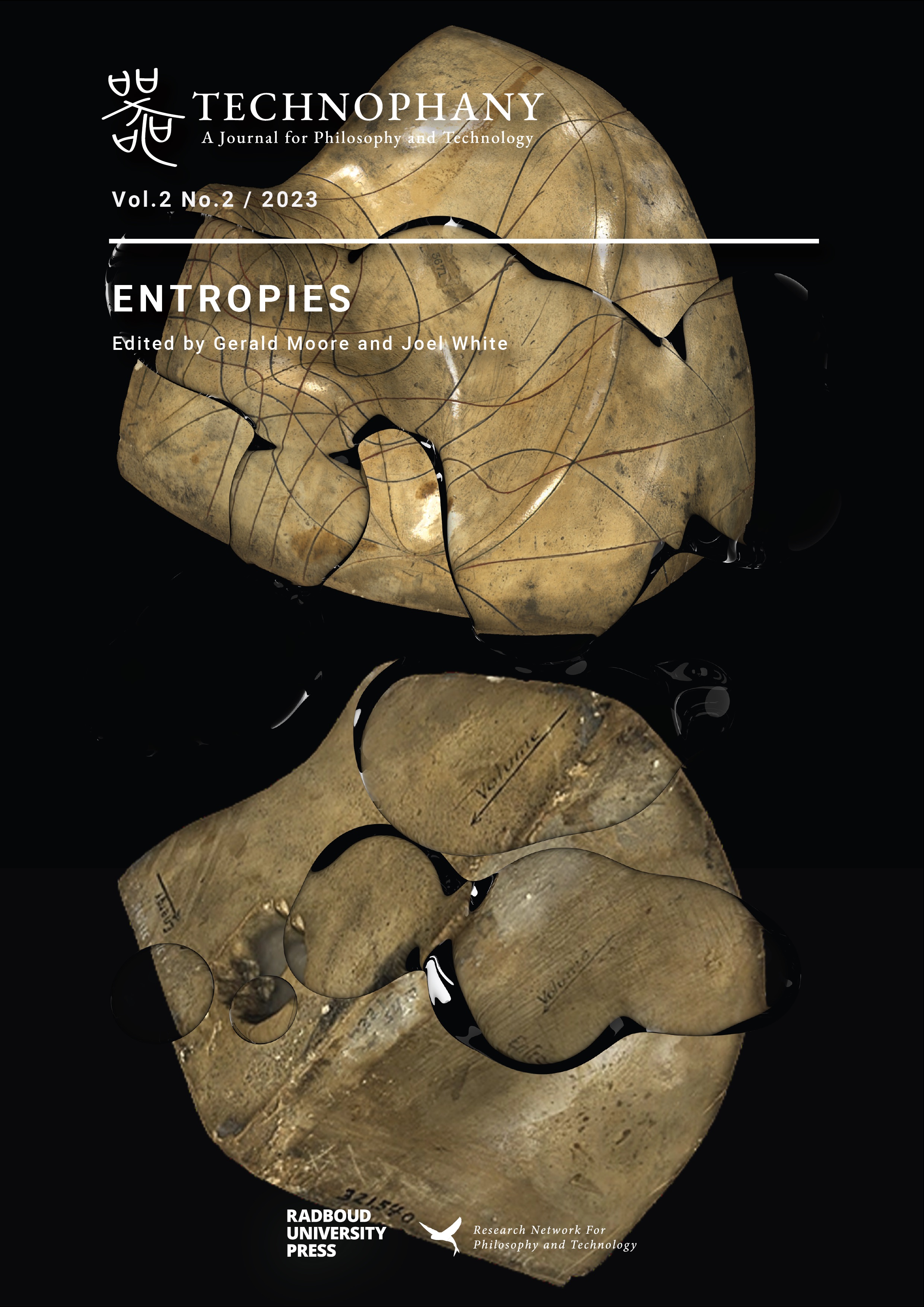Entropy and Negativity
The Ecological Implications of Dialectics
DOI:
https://doi.org/10.54195/technophany.15370Abstract
Entropy, often defined negatively as disorder or randomness within a system, is vital for organisation while also posing a threat to cyclical reproduction. Entropy is not equivalent to disorganisation, but rather a source of creativity at the local level, even if the tendency towards entropy persists globally. In this article, we build upon Bernard Stiegler’s understanding of entropy, and argue that the interplay of entropy and anti-entropy can be comprehended through Hegel’s notion of negativity, and draw upon the organisational approach to biological systems, which introduces anti-entropy as akin to organisation. Thus, we address Stiegler’s lopsided criticisms of dialectical accounts and argue that the interplay between entropy and anti-entropy is inherently dialectical. We also employ the concept of habit to understand the dialectic of entropy and anti-entropy in the life of organisms, and the delicate balance between stability and plasticity that must be upheld for the thriving of both organisms and their environments.
Downloads








